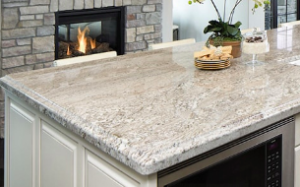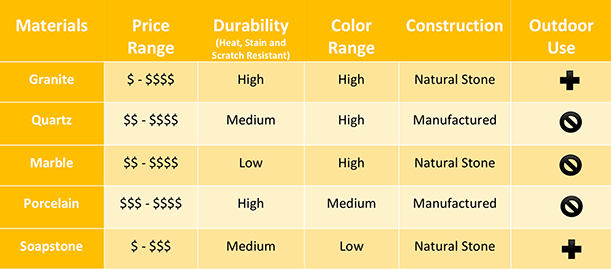Everything You Need to Know About Granite
 Selecting the right countertops for your family is an important decision and can be an overwhelming decision. There are many options with many different benefits. Granite, however, is the overwhelming winner in most homes for a few reasons.
Selecting the right countertops for your family is an important decision and can be an overwhelming decision. There are many options with many different benefits. Granite, however, is the overwhelming winner in most homes for a few reasons.- It is extremely durable,
- The high density makes it more resistant to scratching and staining as well.
- The sealant makes it easy to clean.
- Granite is easily resistant to heat up to temperatures of 480°F. However, to prevent possible damage, avoid extreme changes in temperature and do not intentionally place hot pots or pans on granite- it is still best to use pot holders.
- They add value to your home since they are a sought after material.
Cons:
- It needs to be sealed to make it more resistant to staining since it is somewhat porous.
- It is more expensive than some of the other manufactured options.
- There are not as many color variations as manufactured stones.
What’s the best way to keep granite countertops in good
Most of all, don’t stress over your countertops, says Epstein. “Natural materials don’t all look identical to one another and don’t remain factory-perfect over the course of their lifetimes—and they’re better for it.”
What should you consider when selecting a granite slab for your countertops?
It may sound obvious, but when selecting a stone, make sure you like the look of it. “The largest part of this decision is aesthetic,” says Epstein. “No matter what countertop you install, you’re going to need to care for it and live with it. You should choose the slab you like most.” Some granite slabs have more “movement”—or natural pattern—than others, so take time to consider what style suits your kitchen or bathroom.
Once you settle on the right aesthetic, make sure the slab you select isn’t cracked or filled excessively, she says, both of which cause structural weaknesses that lead to future problems.


